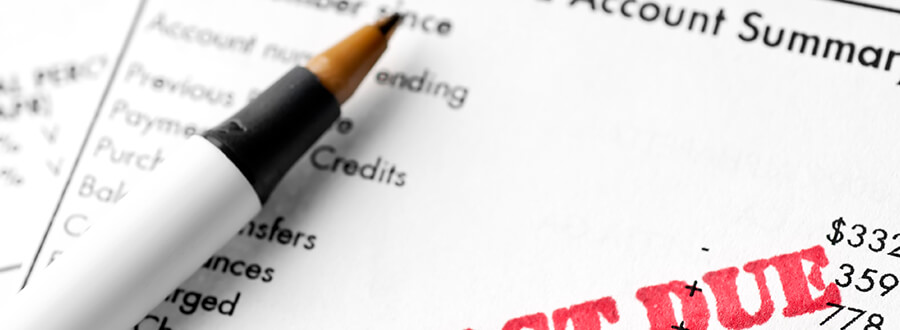Key Points
- Missed or late payments not received by the due date result in a delinquency.
- Failing to make a payment of any type on an account on an account for six months (180 days) or more will lead to a loan charge-off.
- Both a delinquency and charge-off do not change your legal obligation to repay the debt.
- Creditors will typically work with borrowers who have unsecured delinquent or charged-off accounts.
- Creditors facing the likelihood of an account going unpaid for 6 months or more may be more willing to accept a negotiated settlement of less than the full amount owed.

You miss a credit card payment by one day and face a $39 late fee.
Cutting expenses to the bare bones, you catch up the account, only to miss another payment a few months later. As the cycle of falling behind and catching up continues, you wonder if you will ever be able to keep your accounts current, let alone pay them off.
When you miss payments, late fees and default interest charges keep balances high, making it harder to eliminate debt even after catching up on payments.
Understanding the difference between delinquency and charge-off and how the account status impacts your finances can help you recognize the steps required to get out of debt.
Here is what you need to know about the differences between delinquency and charge off.
When Does an Account Become Delinquent?
Delinquency occurs when you fail to make a current payment owed by the due date.
The type of credit determines when the creditor considers the account late. For example, mortgages offer a 15-day grace period, where a credit card has no grace period. Mortgages become delinquent 16 days after the payment due date, and credit cards become delinquent the day after a missed payment.
Personal loans and vehicles have a grace period between 5 and 15 days, depending on the loan.
The personal cost of delinquency: Late charges are the primary price, although creditors can immediately begin collection calls. Most lenders will not report a late payment to the credit bureau until the account is 30 days late.
When Does an Account Go into Default?
A loan default is the period between delinquency and charge-off. When you miss multiple payments, creditors worry you will be unable to catch-up on the account. Default provisions can include late fees and a higher interest rate that remains in place even if you bring the account current. Some loan agreements give creditors the right to demand the full balance owed when the account goes into default.
The personal cost of a default: Creditors can repossess collateral such as a vehicle, boat, or home. Unsecured debts, such as personal loans, medical obligations, and credit card debt, give creditors limited recourse on defaulted debt.
Creditors charge late fees and, in some cases, higher interest rates, along with reporting the late payments to the credit bureau. Most lenders use in-house collection departments or enlist the help of a collection agency.
When Does a Creditor Charge-Off an Account?
Creditors charge-off debt once it goes 180 days without a payment. Missing six payments will typically result in a charge-off, which is an accounting process that categorizes the debt as uncollectable.
When an account reaches charge-off, interest, fees, and penalties stop accruing. Creditors may continue collection efforts or will sell the debt to a debt buyer. These accounts have substantially less value to a debt buyer because of the diminished odds of collecting the full amount owed.
The personal cost of a charge-off: Lenders will seize collateralized debt and sell it to repay the balance owed. If the sale does not produce enough to settle the account, the creditor can pursue the remaining balance as unsecured debt.
Debt without collateral gives creditors fewer legal options. Because of the limited means to collect on the debt, creditors are often willing to accept a payoff for less than the full balance due.
Late payments remain on your credit file for seven years, whether you pay the full balance or negotiate a settlement.
